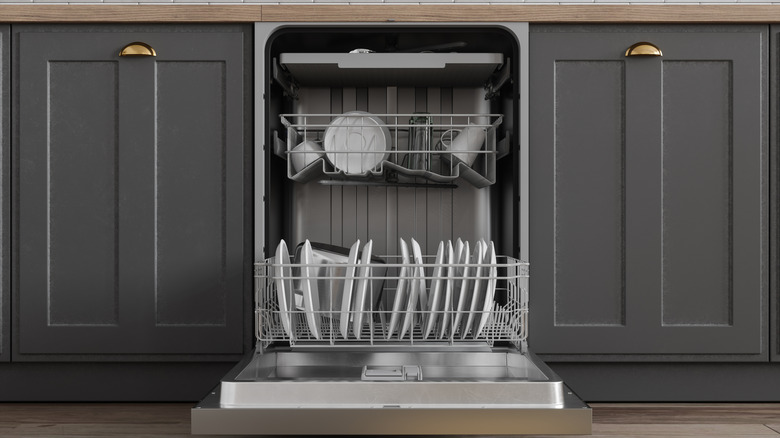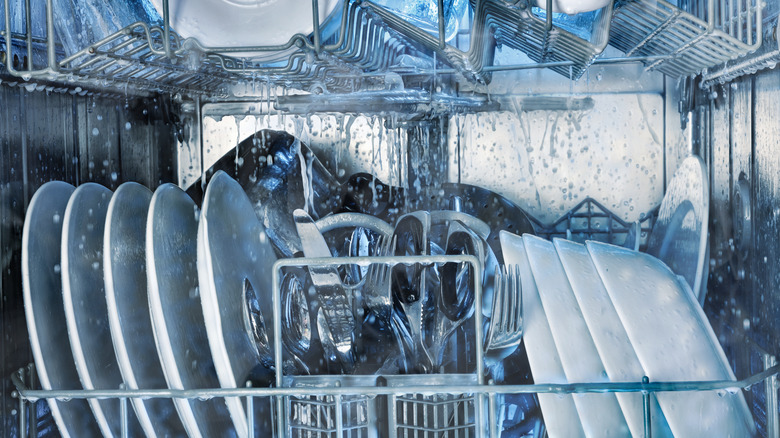The Counterintuitive Task That Actually Helps Your Dishwasher Last Longer
Your poor dishwasher, you think. It must be so overworked from cleaning all the crud from your delicious meals off of your plates and silverware, returning them to their shiny and sparkly glory. You might as well give it the night off, right? Wrong. While you may think that turning away from the automatic time-saver that is your dishwasher and resorting to hand-washing your dishes is a good way to give your dishwasher a break, it's actually better to regularly run your machine to extend its lifespan. And if you're in the market for a new dishwasher, here are several dishwasher brands to avoid buying if you want a reliable appliance.
Running your dishwasher, whether it's full of dishes or half-empty, is a good way to keep the machine free of debris and mineral buildup. When bits of old food collect at the bottom of the dishwasher, it's easy for a clog to form — and the longer that food sits there, the harder it becomes to clean. While you're thinking about best dishwasher practices, check out this list of common kitchen items you absolutely should not put in the dishwasher.
Running your dishwasher regularly keeps it clean
Over time, food debris and mineral deposits build up inside your dishwasher. This buildup is compounded when you let your dishwasher sit empty for too long. Running your dishwasher regularly, especially when it's not 100% full, can help clean this food debris and reduce mineral buildup. You should also run your dishwasher at least once a week to keep the machine's motor seals working smoothly. In addition, running your dishwasher actually consumes less water than washing dishes by hand — so save your water bill and the environment by running your dishwasher rather than taking to the dish soap and sponge.
Did you know that running your dishwasher, especially while empty, helps to clean it? To clean your dishwasher and prevent clogs, fill a small bowl with about a cup of white vinegar. Place the bowl on the bottom rack of your empty dishwasher and run a short hot cycle. This will help to break down mineral deposits and excess soap. In addition to using your dishwasher regularly, make sure you're using the correct cycle setting, loading it properly, and using the right detergent for your machine. Taking these steps can prolong the life of your dishwasher and keep your sink free of dirty dishes. Having other troubles with your dishwasher? Here's how to troubleshoot common dishwasher problems before they become bigger issues.

